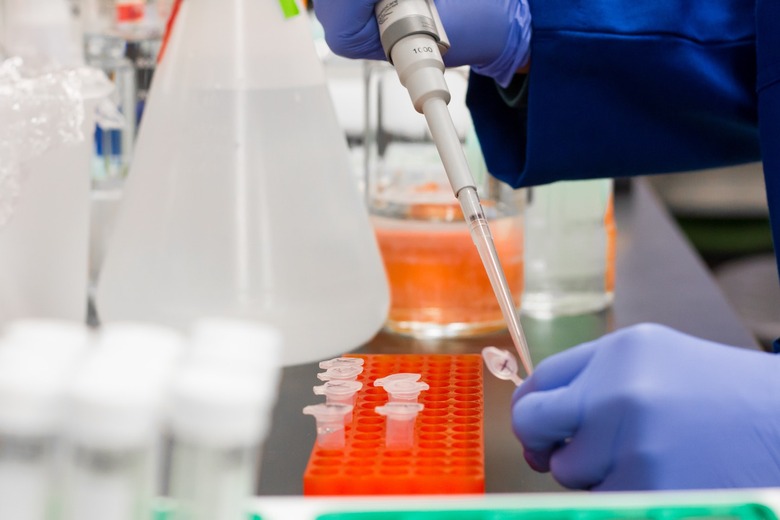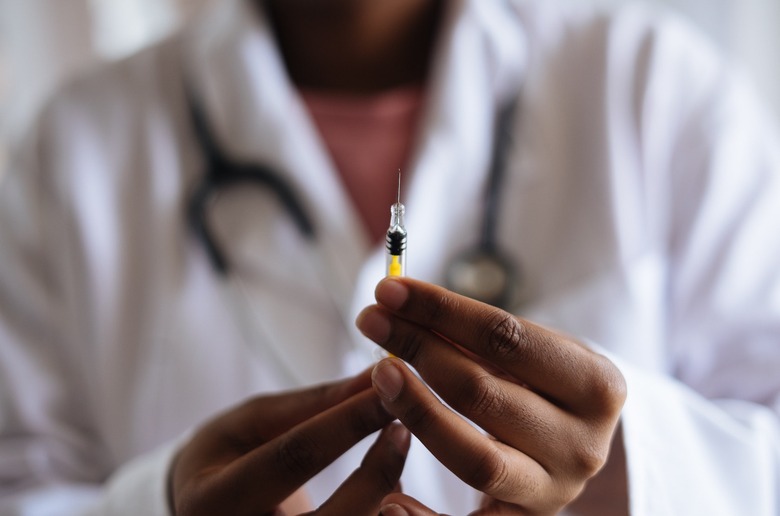FDA: COVID-19 Mutation Will Require Vaccine & Test Changes But There's Still Good News
COVID-19 mutations have already reached the US and could impact existing vaccines and tests during the pandemic, the FDA has said, confirming that new regulations are being worked on that will hopefully streamline variant-focused updates to healthcare. However the Food and Drug Administration says that, for the moment at least, it believes the risk of mutations on existing molecular testing for coronavirus is low.
That doesn't mean it'll always be that way, of course. The FDA said that work is underway to assess the impact of new strains on products that have already received emergency use authorization (EUA), including adapting some of the existing processes that had already been developed for flu and HIV.
"Moving forward," the FDA said in a statement, "we are considering expanding the role of in silico monitoring by sponsors prior to and following authorization to assess for mutations that impact the performance of the test, test designs to minimize the impact of new mutations and ways to label authorized products to be transparent about what we know the test can detect."
That COVID-19 would evolve and mutate over time was always an expected development of the virus. What was unclear initially was just how impactful those mutations would be, either on the speed of spread of infections or the potential resistance to existing treatments. So far, early analysis of the coronavirus variants in the wild have suggested that they do indeed show greater virality, though their impact may not necessarily be more significant than the originally-identified strain.

"We have already been communicating with individual medical product sponsors to provide information as they evaluate the impact of COVID-19 variants on their products," the FDA said. "And as part of our commitment to a public and transparent process, the FDA is developing guidances for diagnostic, therapeutic and vaccine developers to help guide ongoing medical product development. "
That guidance could include how regulations could be made more flexible, as pharmaceutical companies and research centers adapt and test existing treatments and vaccine candidates. "We are aware that some of the neutralizing monoclonal antibodies that have been authorized or are under development are less effective against some of the COVID-19 variants that have emerged," the agency highlights, "and we are working with drug developers to accelerate the evaluation of new antibodies that could be effective against mutations."
As for testing, though the risk of variants having a significant impact on current tests for COVID-19 infection are believed to be relatively low right now, enhancements there are also being explored.
While mutations add uncertainty to how the pandemic plays out, the FDA says there's still room for confidence. Perhaps most reassuring is that the current belief is that existing treatments and vaccines granted EUA are unlikely to be rendered entirely useless even as variants arise.

"We do not believe there will be the need to start at square one with any of these products – we recognize we are in a pandemic and we need to arm health care providers with the most appropriate tools to fight this pandemic on the frontlines," the FDA says. "We do not want to create obstacles to getting these tools to the frontlines."
Existing vaccine candidates – which include drugs from Moderna and Pfizer – could be adapted or supplemented to deal with mutations. The agency is also looking into how "streamlined clinical programs" could both gather essential trial and testing data, while still minimizing delay to deployment. Current vaccinations "remain effective in protecting the American public against currently circulating strains of COVID-19" the FDA insists.
Meanwhile, Johnson & Johnson have requested an EUA for a single-shot COVID-19 vaccine that the pharma company has been developing. That would differ significantly from the existing vaccines in deployment, which require two injections separated by a period of typically 3-4 weeks.
The reality, though, is that the same core preventative measures remain a key part of staying safe, regardless of the COVID-19 mutation in question. In a press conference earlier this week, representatives from the US CDC confirmed the agency was "actively looking at" coronavirus variants, but said that early tracing indications were that those infected were often "not taking the primary measures of any masking or any distancing. That, the CDC and FDA agree, is still an essential part of reducing the spread of the virus.
